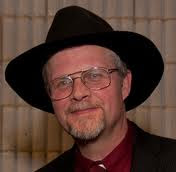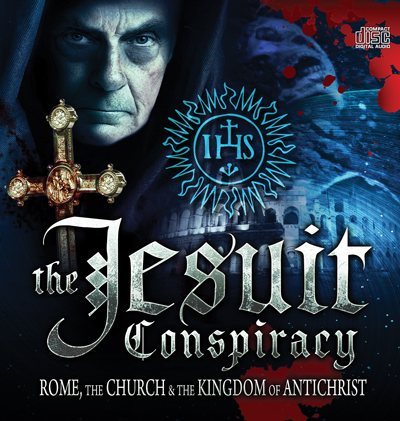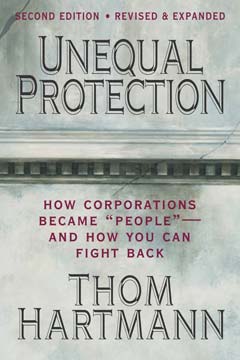I. Introduction to Neoplatonism and Absolute Divine Simplicity (ADS); How it developed through Origen into the Scholastic and Protestant Scholastic Period; The Eastern Alternative in the Essence and Energies Distinction; The Fundamental Difference Between Eastern and Western Conceptions of Simplicity; The Nature-Will Distinction fundamental to Athanasian Trinitarianism and Creation Ex Nihilo
Saving Faith and Truth as Encounter in Plotinus, by Drake
Do You Know What You Believe? Part 3 What is God? Part A
Origen’s Mistake and One of Dr. Clark’s Mistakes
Divine Simplicity 1
Francis Turretin’s Neo-Platonism in Divine Simplicity, by Drake
Do You Know What You Believe Part 4; What is God? Part B The Trump Argument for Scripturalism
The Essence and Energies Distinction in David Bradshaw Refuted
James Anderson’s Mistaken Interpretation of Eastern Triadology
‘Free Choice in Maximus the Confessor’ by Joseph P Farrell Reviewed by Drake Shelton
Debate with Hyper Calvinist on Nature and Will Distinction
Darkness: A Consistent Hyper-Calvinist
Creation Ex Nihilo
Creation Ex Nihilo-Early Clark vs. Later Hyper-Calvinist Clark
II. Problems ADS Resulted In
Another Problem for the Scholastics: Eternal Generation or Simplicity, Take Your Pick; You Cannot Have It Both Ways, by Drake –
Augustine on the Unipersonality of God, ed. Drake
Do You Know What You Believe? Part 5; What is God? Part C Procession of the Spirit
My exchange with TFAN on these issues
III. A Vindication of Nicene Triadology Against ADS
A Theological Introduction to the Mystagogy of Saint Photios by Joseph Farrell
Photius’ Mystagogy
IV. Historical Precedent For a Protestant Nicene Triadology
Cyril Lucaris and the Synod of Jerusalem
Cyril Lucaris’ Rejection of the Filioque, by Drake
V. Alternative View to the Western Neoplatonism and the Eastern Neoplatonism in Gordon Clark
Emanation, Eternal Generation and Creation: What’s the Difference? by Drake
Divine Simplicity 2
Scripturalism’s Immediate Knowledge Related to Infant Salvation by Drake
What You See at the Bottom of the Clark-Van Til Rabbit Hole; Scripturalist Christianity vs Neo-Platonism
A Scripturalist Construction of Greek and Nicean Triadology Part 1
A Scripturalist Construction of Greek and Nicean Triadology Part 2 Eternal Generation
A Scripturalist Construction of Greek and Nicean Triadology Part 3; The Procession of the Spirit
The Economical and Ontological Trinity; What is it?, by Drake
Saving Faith
VI. 11 Questions
1. Absolute Divine Simplicity (ADS): Where is it in the Bible?
2. When Turretin says, Volume 1. 3rd Topic. Q 7
“Proof that God is perfectly simple. IV. This proved to be a property of God: (1) from his independence, because composition is of the formal reason of a being originated and
dependent (since nothing can be composed by itself , but whatever is composed must necessarily be composed by another; now God is the first and independent being, recognizing no other prior to himself) ; (2) from his unity, because he who is absolutely one, is also absolutely simple and therefore can neither be dived nor composed; (3) from his perfection, because composition implies
***********IMPERFECTION******************* inasmuch as it supposes
passive power, dependency and mutability. ” Institutes of Elenctic Theology Volume 1 (P & R Publishing: Phillipsburg, NJ, 1992), pg. 191
And Muller in an exposition of Bonaventure, in explaining the Scholastic doctrine of Simplicity says, “there is something prior to every imperfect or composite being.” (Muller Vol. 4, pg. 41) Do you admit that both of these authors are operating directly off of Plotinus where this thinking led him back ultimately to an absolute Monad and not a drop of scripture?
3. Do you agree that Augustine was highly influenced by Plotinus?
4. Do you agree that the doctrine of analogy of proportionality (Thomistic view of epistemology) is sourced in ADS? The other big issue is the Western Scholastic dialectic between the infinite and the finite. My pastor as well as other people use this to avoid any real connection between man and God not understanding the Christological implications. The entire problem with this construction (analogy of proportionality) is that it eliminates the possibility of a hypostatic union in Christ. Christianity teaches that humanity and
divinity united metaphysically/really at the level of hypostasis. Aquinas’ construction is exposed as Adoptionism and at best Nestorianism by Jules Grisham. Grisham states in his Felled By “Good Pleasure”. An Examination Of The Condemnation Of The Grammatico Historical Method Of Interpreting Scripture, As It Was Developed In The Exegetical School Of Antioch
“Theodore, then, to his own thinking, was only being consistent when he taught that the human nature of Jesus was essentially distinct from the divine nature of the Son-Logos. Because he understood hypostasis as referring to the concrete instance of a nature (in the sense that a person is a concrete instance, a particular expression, of human nature), and because, according to his fundamental understanding concerning the radical “other-ness” of God, he insisted that the divine and human natures could not be hypostatically joined without corruption of the divine, Theodore held that there is an inhering dualism in
Christ’s person. Accordingly, he taught that we must think of Christ’s union not as a hypostatic one (that is, of substance) but as a prosopic one (that is, of manifestation and benevolence). Prosopon means “face,” “role” (referring to drama as well as to social status), or “person,” in the societal-functional sense –i.e., what one does. And
the concept he used to explain how this prosopic union came to be and
remains intact is “assumption.”(pg. 27)
I wonder how Theodore would take Aquinas’ “extrinsic bond… a third thing to which the signification of a particular belongs primarily”. Upon examination I can find no difference between the two. Theodore’s Prosopon was just that; namely a product of the union of the two natures: a third thing as the common bond between the two natures. This is precisely the opposite of what Scripturalism teaches. We believe in a univocal participation in God and deny that God is totally other as the Van Tillians, the Scholastics and the Neoplatonist Eastern Church teaches. Gordon Clark says in Three Types of Religious Philosophy (Jefferson Maryland, The Trinity Foundation,1989) by Gordon Clark pg. 123 –Dogmatism-Realism
“To be sure, Christian dogmatism does not accept the unaltered World of Platonic Ideas. The Philonic Interpretation is better. [By the way Philo’s construction posited the Ideas in the mind of God. DS] Still better is the replacement of Ideas (minus predicates) by propositions or truths…Christian dogmatism therefore must be realistic. The real object of knowledge is itself present to the mind…There are of course other thoughts, objects, or realities. Every Biblical Proposition is one. These never change nor go out of existence, FOR THEY ARE THECONSTITUENTS OF GOD’S MIND…We know God directly for in him we live and move and have our being.” Clark says again, “The scripture presents the relationship between the mind of God and the mind of man as a much more intimate relationship than is commonly believed. In 1 Corinthians 2:16 the apostle says, ‘we have the mind of Christ’. On this verse Meyer comments, ‘Since Christ is in
them…their nous, too, can be no mental faculty different in kind from the nous Christou, but must, on the contrary, be as ideally one with it, as it is true that Christ himself lives in them.’ See also Philippians 2:5,‘Let this mind be in you, which was also in Christ
Jesus.’ Of course these verse do not equate the person of Christ with out person, either pantheistically or existentially. Their meaning is that our mind and Christ’s mind overlap or have a common area or coincidence in certain propositions…Christ’s mind and our mind only overlap: they are not coextensive. Plato may require omniscience but
Christianity uses revelation; and man knows only so much as God has revealed to him. In my publications I have never claimed more than a partial knowledge forman.” (The Philosophy of Gordon Clark, pg. 406-407)
Aquinas’ Nestorianism at this point is again reiterated by FrancisTurretin when he says,
“For the Son of God only is ‘the image of the invisible God’ (Col1:15)-the essential and natural, and no mortal can attain to it because the finite cannot be a partaker of the infinite. And if we are said by grace to be ‘partakers of the divine nature’ (2 Pet 1:4),
this is not to be understood of an essential, formal and instrinsic participation, but an analogical, accidental and extrinsic participation (by reason of the effects analogous to the divine perfections which are produced in us by the Spirit after the image of God).” Institutes of Elenctic Theology Vol. 1 (Phillipsburg, NewJersey: P&R Publishing, 1994), pg. 465
An accidental connection between humanity and divinity? That is Adoptionism and Nestorianism. I posit a direct, univocal and real participation in God. We are made in God’s real image, that is, the logos of our image is uncreated, and were given language
structures that in category are uncreated.
5. If so, do you agree then that this ADS God could never give a real revelation but only a representational revelation?
6. Do you agree that ADS would by definition eliminate the possibility of 3 absolute hypostases in the Trinity?
7. Do you agree that Aristotle’s Metaphysics where Substance=Subject also commit its adherent to a single subject God with only the possibility that the three persons are three predicates/relations?
8. Do you admit that the ADS Monad of Plotinus was not a mind, specifically because it was simple, but the Nous/Mind was the first production of the Monad? If so, do you admit that anyone who holds to ADS must deny that God has a mind?
9. Do you agree that since the God of the West is based on ADS, which denies three absolute persons, the ontological source in Western Trinitarianism is not the Father but the divine nature? (Yes I’ve read Calvin’s comments on this and his assertion that the Logos is auto-theos is clearly a denial that the Father is the ontological source)
10. Do you agree that Augustine, operated off of ADS to construct Filioque when he asserts that since the Father causes (eternal generation + eternal procession) the Son must cause if he is truly divine (which is a collapsing of personal properties into the Monad)?
[P.S. You already admitted this: Through Western Eyes,“Plotinus [A major Neo-Plantonist writer] had posited a supreme being, the One, characterized by absolute simplicity (with no internal distinctions or particulars) In virtue of this simplicity, the One’s existence, nature, activity, and will are identical. Augustine saw common ground
between the Christian doctrine of God and the NeoPlatonic idea of divine simplicity. In doing so he made the one essence of God primary. With no internal distinctions, great problems arose as to how to conceive of, and defend, the doctrine of the trinity…it is undeniable that there are crippling weaknesses in the Western doctrine of God
(pg. 231-232)…In the West, the danger of modalism is very real, evident in all Western theology down to Barth and Rahner. If we start with the divine unity, expressed in the idea of absolute divine simplicity, the persons become problematic as real, personal, permanent, irreducible, and eternal ontological distinctions…Indeed. most Western Christians are practical modalists.”(pg. 238) In discussing the relationship between simplicity and the Filioque, you say, “As Ritschl suggests, Augustine’s beginning with the trinity rather than with the Father, as the Cappadocians had done, together with his stress on the divine simplicity, makes the Filioque almost inevitable.” (pg. 229) ]
11. How do you feel about Loraine Boettner, John Murray and Robert Reymond’s denial of the eternal generation of the Son?



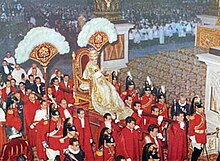
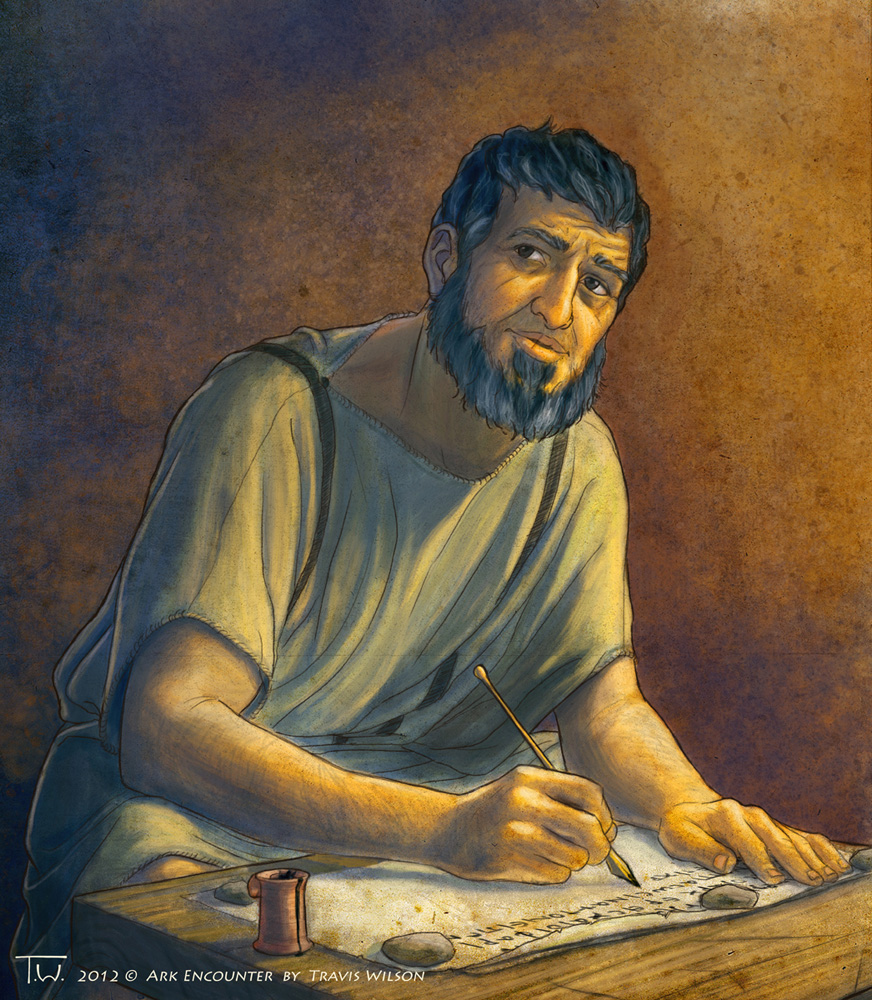


-1-.jpg)












